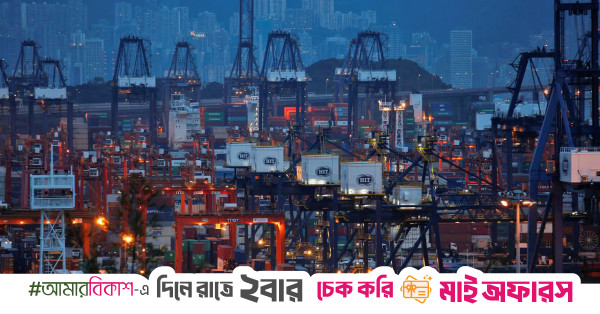Democratic Committee Demands Environmental Reforms in China Trade Deal

A general view of Hongkong International Terminals (HIT), owned by Hutchison Port Holdings, as part of the Kwai Tsing Container Terminals for transporting shipping containers in Hong Kong, China July 25, 2018/ Reuters.
Highlights:
- Democratic lawmakers on House China committee send letter to Trump officials
- Letter emphasizes trade deal should target China’s overproduction
- US should craft an international solution with allies and partners, according to the letter
Increasing Pressure on China
Democratic members of a House of Representatives committee focused on China are urging the Trump administration to enforce “binding requirements” for reducing China’s industrial overcapacity. This sentiment was conveyed in a recent letter to Treasury Secretary Scott Bessent and other top trade officials. The letter, viewed by Reuters, advocates for significant changes to China’s economic model that lead to overproduction.
At the heart of the letter is the assertion that China produces a surplus of manufactured goods that far exceeds domestic consumption, resulting in oversaturation in international markets. While China denies accusations of overcapacity, it has acknowledged ongoing deflation issues and competitive pricing conflicts in various sectors.
As Bessent and U.S. Trade Representative Jamieson Greer began discussions in Madrid with Chinese officials, including Vice Premier He Lifeng, this issue took center stage. However, no responses from the Treasury and Commerce departments have been made concerning the letter’s requests.
A Rare Bipartisan Concern
The call for action from the House Select Committee on China echoes proposals previously set forth by the Biden administration and former Treasury Secretary Janet Yellen. Despite likely resistance from the Trump administration, the letter underscores a rare moment of bipartisan concern about economic competition with China.
Specifically, the letter highlights how China’s historical reliance on structural overproduction to fuel economic growth has a detrimental impact on U.S. industries and employment. It underscores the concerns regarding international market stability due to China’s oversupply issues.
Industry Impact and International Cooperation
The trade discussions between the U.S. and China are critical, as both nations have struggled to establish a lasting truce over tariffs that were extended for 90 days last month. The letter stresses that addressing overcapacity is vital, citing China’s steel and solar panel industries as specific instances where excessive supply resulted in job loss and industry decline in the U.S. and beyond.
Furthermore, the Democratic lawmakers propose leveraging the concerns of allies regarding Chinese exports to create a unified international response. This collaboration is essential in crafting a balanced approach to tariffs, steering away from the previous unilateral moves that have included tariffs imposed on close allies such as South Korea and Japan.
As the U.S. contemplates its next steps in trade negotiations, the focus remains on how to orchestrate a multinational effort to combat China’s expansive production capabilities while safeguarding American jobs and maintaining international market equilibrium.



